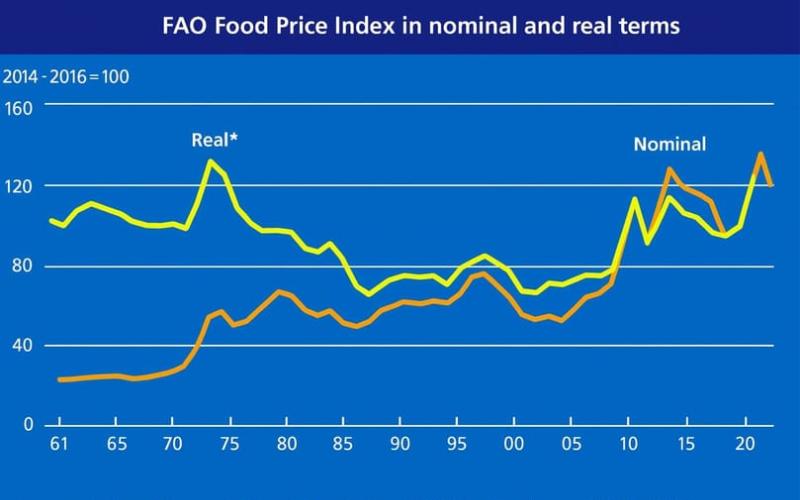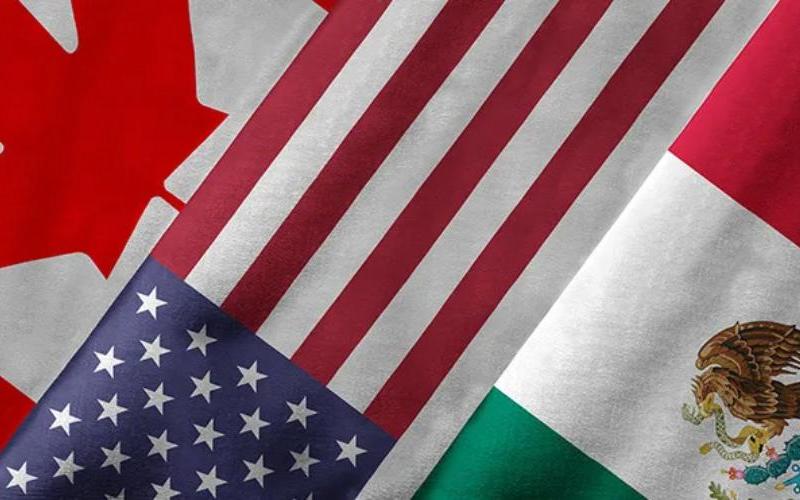FSSAI’s New Notification on A2 Milk: A Mixed Bag for Dairy Farmers
Sourse: DairyNews.today
The Food Safety and Standards Authority of India (FSSAI) has recently issued a notification aimed at regulating the labeling and marketing of A1 and A2 milk products, a move that has sparked significant discussion among stakeholders in the dairy industry.

This initiative is seen as a response to the growing consumer interest in the differences between A1 and A2 milk, driven by the perceived health benefits of A2 milk, which is believed to be easier to digest and less likely to cause discomfort compared to A1 milk.
A1 and A2 refer to different types of beta-casein protein found in milk. A2 milk is primarily produced by indigenous cattle breeds, such as those found in India, and some other animals like goats, sheep, and camels. In contrast, A1 milk is more commonly produced by European breeds like Holstein. While A2 milk has gained popularity for its supposed health benefits, the scientific evidence supporting these claims remains inconclusive. Nonetheless, there has been a growing market for A2 milk, with some consumers willing to pay a premium for it.
The FSSAI Mandate: Swift Action but Mixed Reactions
FSSAI’s notification mandates that dairy producers clearly remove the A1/A2 labeling from their products, requiring compliance with the provisions of the FSS Act 2006. The goal is to prevent misleading advertising and ensure consumers make informed choices based on clear and accurate information.
The speed with which this decision was implemented has been both praised and criticized. While consumer rights groups and health advocates have welcomed the move as a step towards greater transparency, many in the dairy industry, particularly those involved in the production and marketing of A2 milk, view it as potentially detrimental. The notification could be seen as a setback for smaller dairy farmers and new-age dairy startups that have been capitalizing on the premium market for A2 milk. These businesses may now face challenges in distinguishing their products in the marketplace.
Concerns About the Decision-Making Process
One of the key criticisms of the FSSAI notification is the apparent lack of broad consultation with stakeholders, especially small dairy farmers who stand to be most affected. Reports suggest that discussions leading up to the decision focused primarily on A2 ghee rather than A2 milk, raising concerns about the thoroughness of the deliberations. The dual connotation of A2—referring both to the nature of the protein and the genetic identity of the cattle—makes this a complex issue, particularly when it comes to preserving the traceability and authenticity of milk from indigenous breeds.
The Commercial Impact
The organized dairy market in India is valued at approximately ₹2.5 lakh crore, with A2 milk and ghee accounting for a very small fraction of this figure. The notification's timing is also questioned, especially when considering the regulator's slower response to other pressing issues, such as the prevalence of adulterated and analogue dairy products, which pose a much larger threat to consumer safety and market integrity.
Global Context and Indigenous Cattle
Internationally, the trend is moving towards A2 milk, with countries like New Zealand and regions in the Middle East making significant strides in increasing the production of A2A2 milk. For example, New Zealand’s dairy industry is rapidly increasing its share of A2 beta-casein in milk, and the Middle East is investing in A2A2 cattle for their dairy operations. In contrast, India’s new FSSAI regulations might hinder the country’s ability to position itself as a leader in the global A2 milk market, despite government initiatives like the Rashtriya Gokul Mission, which aims to promote indigenous cattle breeds known for producing A2 milk.
Government Commitment to A2 Milk and Indigenous Breeds
The Indian government has been actively promoting the conservation and development of indigenous cattle breeds through various initiatives. The Rashtriya Gokul Mission, National Dairy Plan-I, and other programs are designed to boost milk production and ensure the health of these breeds. Despite these efforts, the FSSAI’s recent notification may undermine these initiatives by making it harder for farmers to market their A2 milk as a premium product.
A Call for Industry Reflection
Overall, FSSAI’s notification on A1 and A2 milk has far-reaching implications for India’s dairy industry. While it promotes transparency and accountability, it also raises questions about the future of A2 milk as a niche product in India. The dairy industry must now consider whether the push towards indigenous cows and A2 milk, seen as a pathway to doubling farmer income, is becoming increasingly uncertain.
As the debate continues, it remains to be seen whether the industry will adapt to these new regulations or if further discussions and revisions will be necessary to ensure that the interests of all stakeholders, particularly small-scale farmers, are adequately addressed.
A1 and A2 refer to different types of beta-casein protein found in milk. A2 milk is primarily produced by indigenous cattle breeds, such as those found in India, and some other animals like goats, sheep, and camels. In contrast, A1 milk is more commonly produced by European breeds like Holstein. While A2 milk has gained popularity for its supposed health benefits, the scientific evidence supporting these claims remains inconclusive. Nonetheless, there has been a growing market for A2 milk, with some consumers willing to pay a premium for it.
The FSSAI Mandate: Swift Action but Mixed Reactions
FSSAI’s notification mandates that dairy producers clearly remove the A1/A2 labeling from their products, requiring compliance with the provisions of the FSS Act 2006. The goal is to prevent misleading advertising and ensure consumers make informed choices based on clear and accurate information.
The speed with which this decision was implemented has been both praised and criticized. While consumer rights groups and health advocates have welcomed the move as a step towards greater transparency, many in the dairy industry, particularly those involved in the production and marketing of A2 milk, view it as potentially detrimental. The notification could be seen as a setback for smaller dairy farmers and new-age dairy startups that have been capitalizing on the premium market for A2 milk. These businesses may now face challenges in distinguishing their products in the marketplace.
Concerns About the Decision-Making Process
One of the key criticisms of the FSSAI notification is the apparent lack of broad consultation with stakeholders, especially small dairy farmers who stand to be most affected. Reports suggest that discussions leading up to the decision focused primarily on A2 ghee rather than A2 milk, raising concerns about the thoroughness of the deliberations. The dual connotation of A2—referring both to the nature of the protein and the genetic identity of the cattle—makes this a complex issue, particularly when it comes to preserving the traceability and authenticity of milk from indigenous breeds.
The Commercial Impact
The organized dairy market in India is valued at approximately ₹2.5 lakh crore, with A2 milk and ghee accounting for a very small fraction of this figure. The notification's timing is also questioned, especially when considering the regulator's slower response to other pressing issues, such as the prevalence of adulterated and analogue dairy products, which pose a much larger threat to consumer safety and market integrity.
Global Context and Indigenous Cattle
Internationally, the trend is moving towards A2 milk, with countries like New Zealand and regions in the Middle East making significant strides in increasing the production of A2A2 milk. For example, New Zealand’s dairy industry is rapidly increasing its share of A2 beta-casein in milk, and the Middle East is investing in A2A2 cattle for their dairy operations. In contrast, India’s new FSSAI regulations might hinder the country’s ability to position itself as a leader in the global A2 milk market, despite government initiatives like the Rashtriya Gokul Mission, which aims to promote indigenous cattle breeds known for producing A2 milk.
Government Commitment to A2 Milk and Indigenous Breeds
The Indian government has been actively promoting the conservation and development of indigenous cattle breeds through various initiatives. The Rashtriya Gokul Mission, National Dairy Plan-I, and other programs are designed to boost milk production and ensure the health of these breeds. Despite these efforts, the FSSAI’s recent notification may undermine these initiatives by making it harder for farmers to market their A2 milk as a premium product.
A Call for Industry Reflection
Overall, FSSAI’s notification on A1 and A2 milk has far-reaching implications for India’s dairy industry. While it promotes transparency and accountability, it also raises questions about the future of A2 milk as a niche product in India. The dairy industry must now consider whether the push towards indigenous cows and A2 milk, seen as a pathway to doubling farmer income, is becoming increasingly uncertain.
As the debate continues, it remains to be seen whether the industry will adapt to these new regulations or if further discussions and revisions will be necessary to ensure that the interests of all stakeholders, particularly small-scale farmers, are adequately addressed.
Key News of the Week











